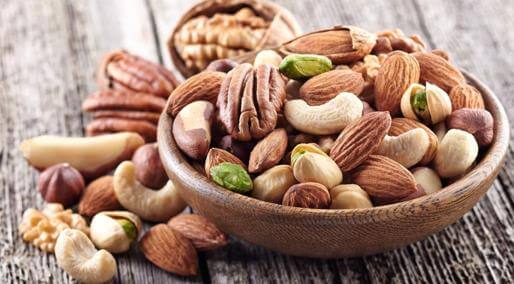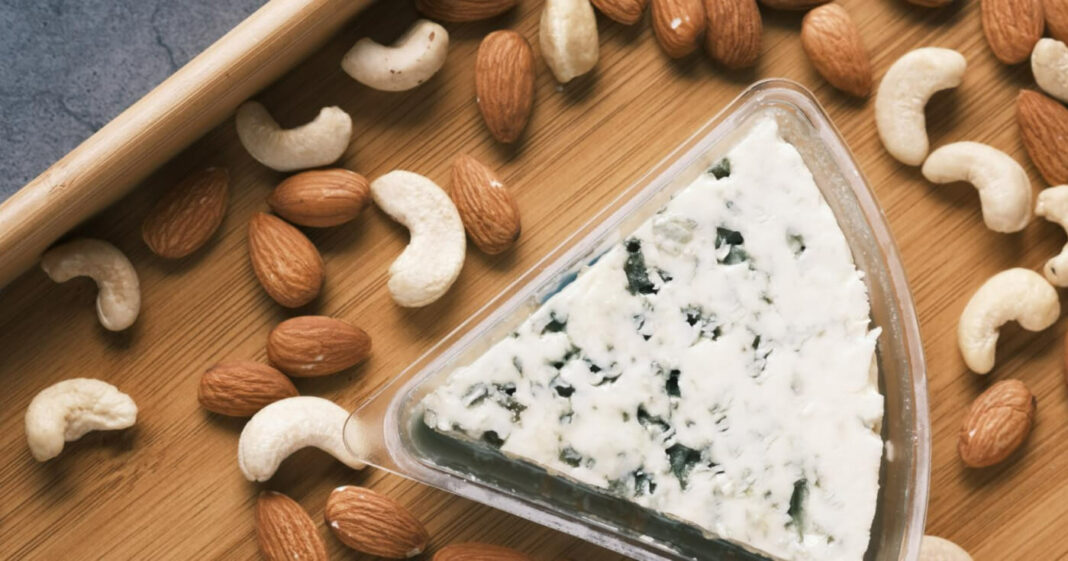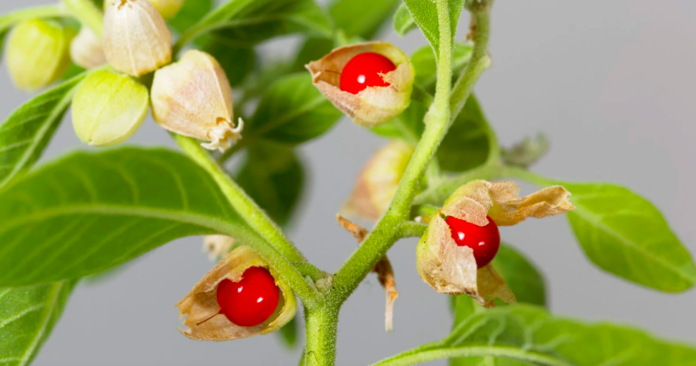Introduction
Foods are essential for the growth and well-being of our bodies. However, as good and essential foods are, they can also be very harmful to the body. To be clear, this does not imply foods are particularly harmful. Instead, it’s a testament to the uniqueness and diversity in the makeup of our body systems.
Our body systems, processes, and organs functioning are different. We digest and metabolize food differently. And more importantly, we react differently to food, substances, and environmental exposure. This is why we have terms like allergies—which means hypersensitive immune response to a substance that is typically harmless to most people.
Moreso, this explains why people with specific health issues or the potential for developing some health conditions are advised to avoid certain foods because they can trigger or worsen the situation. One such condition is eczema.
Hence, in this article, we will take a look at what eczema entails, narrow down the top 10 trigger foods, and of course, how to avoid it and the best alternative to these foods. Let’s get right to it.
What is Eczema?
 Eczema, or
atopic dermatitis
, is simply an inflammatory skin condition. Usually, eczema presents with inflammation and irritation of the skin. Although it is most commonly diagnosed in infants and young children, eczema is a non-contagious condition affecting people of all ages.
Eczema, or
atopic dermatitis
, is simply an inflammatory skin condition. Usually, eczema presents with inflammation and irritation of the skin. Although it is most commonly diagnosed in infants and young children, eczema is a non-contagious condition affecting people of all ages.
Eczema is characterized by dry, itchy, and red patches of skin that can appear anywhere on the body but is most commonly found on the face, neck, hands, and feet. In chronic cases, the skin may become cracked, blistered, and weeping, increasing the risk of skin infections.
While the exact cause of eczema is not fully known, genetics, environmental triggers, and the immune system may play a role in developing this condition. Apart from these factors mentioned above, many other things could result in flare-ups, including stress, exposure to allergens or irritants, changes in temperature or humidity, and certain foods.
According to research, children should naturally outgrow eczema and experience little to no outbreaks as adults. However, this is not usually the case; sadly, there is currently no known cure for eczema. The good news is it can be managed through various methods, including pharmacological treatment and avoiding trigger foods.
In a 2016 study , it was found that many people who have eczema also have food allergies or sensitivities. And while everyone is truly different and we react to foods differently, studies have shown that some foods naturally trigger and worsen this health condition.
In simpler terms, trigger foods are known to exacerbate eczema symptoms and cause flare-ups. Hence, let’s discuss the top 10 trigger foods that cause eczema and how to avoid them.
Top 10 Trigger Foods That Cause Eczema.
Here are the top 10 foods you should avoid if you are battling with atopic dermatitis.
1. Dairy Products
 Arguably, dairy products are the most common food implicated in atopic dermatitis. Examples include cheese, yogurt, cream, and ice cream. In particular, cow’s milk is a known trigger for eczema in infants and young children. For example, in a
2012 study
, it was found that children who consumed cow’s milk experienced a significant increase in developing persistent atopic dermatitis.
Arguably, dairy products are the most common food implicated in atopic dermatitis. Examples include cheese, yogurt, cream, and ice cream. In particular, cow’s milk is a known trigger for eczema in infants and young children. For example, in a
2012 study
, it was found that children who consumed cow’s milk experienced a significant increase in developing persistent atopic dermatitis.
This is because dairy products contain casein and whey, which are types of protein that can cause an immune response and trigger inflammation in the body , resulting in eczema flare-ups.
However, dairy products also contain some essential nutrients; hence, you can try switching to non-dairy alternatives such as soy, almond, or coconut milk. You can also try to find dairy-free versions of your favorite foods, such as vegan cheese or yogurt.
2. Gluten
 Gluten is a protein found in wheat, barley, rye, and other grains. While some research says that gluten does not cause eczema, others suggest that gluten can trigger flare-ups.
Gluten is a protein found in wheat, barley, rye, and other grains. While some research says that gluten does not cause eczema, others suggest that gluten can trigger flare-ups.
To begin with, a study found a significant connection between atopic dermatitis and celiac disease—an autoimmune disease causing gluten sensitivity. In addition, another research found that gluten can worsen eczema condition.
In a 2017 study , many people with eczema who tried a gluten-free diet experienced significant improvements in their symptoms. While research is still ongoing to precisely understand the relationship between gluten and eczema, people with eczema who consume gluten often witness their symptoms get worse.
Hence if gluten exacerbates your eczema, look for the “gluten-free” label on packaged foods or closely scan the ingredients list before you partake. You can also look for gluten-free versions of your favorite foods, such as pasta or bread.
3. Eggs
 Eggs are another typical trigger food for eczema. In a
research
, it was found that egg allergy can precipitate atopic dermatitis, especially in infants and young children. Researchers found that egg consumption was associated with a
higher risk of developing eczema in children
.
Eggs are another typical trigger food for eczema. In a
research
, it was found that egg allergy can precipitate atopic dermatitis, especially in infants and young children. Researchers found that egg consumption was associated with a
higher risk of developing eczema in children
.
This is due to the proteins found in eggs, particularly egg whites. Like dairy products, eggs can cause an immune system response, leading to inflammation and itching.
To avoid eggs, you can switch to egg-free alternatives such as vegan egg substitutes or tofu. You can also look for egg-free versions of your favorite foods, such as baked goods or mayonnaise.
4. Soy
 Another typical trigger food for eczema is soy. This is also particularly common in children and teenagers. A
study
found that eliminating soy from the diets of children with eczema significantly improved the symptoms. This is thought to be due to the proteins found in soy, particularly soybeans.
Another typical trigger food for eczema is soy. This is also particularly common in children and teenagers. A
study
found that eliminating soy from the diets of children with eczema significantly improved the symptoms. This is thought to be due to the proteins found in soy, particularly soybeans.
Although soy is a common ingredient in many processed foods, including baked goods, cereal, and snack bars, you can switch to soy-free alternatives such as almond milk or coconut milk. You can also look for soy-free versions of your favorite foods, such as tofu or soy sauce.
5. Nuts.
 Nuts, particularly peanuts and tree nuts, trigger eczema symptoms in some people. A
review
concluded that consuming peanuts and tree nuts was associated with a higher risk of eczema in children. Another
study
found that children with peanut allergies were likelier to have eczema and other atopic conditions.
Nuts, particularly peanuts and tree nuts, trigger eczema symptoms in some people. A
review
concluded that consuming peanuts and tree nuts was associated with a higher risk of eczema in children. Another
study
found that children with peanut allergies were likelier to have eczema and other atopic conditions.
You can change to nut-free alternatives such as sunflower seed butter or pumpkin seed butter if nuts trigger or worsen your eczema. Also, look for nut-free versions of your favorite foods, such as granola bars or trail mix.
6. Shellfish
 Shellfish, such as shrimp, crab, and lobster, are another common trigger of eczema symptoms in most people. A study published in
the Indian Journal of Dermatology
concluded that shellfish allergy is associated with a higher risk of eczema and other atopic diseases.
Shellfish, such as shrimp, crab, and lobster, are another common trigger of eczema symptoms in most people. A study published in
the Indian Journal of Dermatology
concluded that shellfish allergy is associated with a higher risk of eczema and other atopic diseases.
Shellfish contain high levels of histamine, which can cause an immune system response that leads to inflammation and itching of the skin. Avoiding shellfish may be difficult; however, seafood, such as fish or squid, is a good substitute.
7. Citrus Fruits.
 Citrus fruits, such as oranges, lemons, and grapefruits, contain an allergen called Balsam of Peru (also known as Myroxylon pereirae), which can be
problematic for some eczematic people.
This same study found that avoiding citrus fruits resulted in improvements in eczema symptoms.
Citrus fruits, such as oranges, lemons, and grapefruits, contain an allergen called Balsam of Peru (also known as Myroxylon pereirae), which can be
problematic for some eczematic people.
This same study found that avoiding citrus fruits resulted in improvements in eczema symptoms.
This is because the high acidity levels in citrus fruits may irritate the skin and worsen the symptoms of eczema. You can always switch to any other fruits, such as berries or melons.
8. Spices.
 Spices, such as cinnamon, cloves, and paprika, have been found to trigger eczema symptoms in some people. According to
research
, spices are one of the most common trigger foods for eczema, especially in adults. The same study also confirmed that avoiding these foods may result in the improvement of eczema symptoms in a significant proportion of patients.
Spices, such as cinnamon, cloves, and paprika, have been found to trigger eczema symptoms in some people. According to
research
, spices are one of the most common trigger foods for eczema, especially in adults. The same study also confirmed that avoiding these foods may result in the improvement of eczema symptoms in a significant proportion of patients.
To avoid spices, you can try alternative herbs and seasonings, such as basil, oregano, or thyme. You can also look for spice-free versions of your favorite foods, such as sauces or marinades.
9. Sugar
 In addition, sugar may be a trigger for eczema. High sugar intake can lead to inflammation and worsening eczema symptoms. Besides, sugar can disrupt the balance of beneficial bacteria in the gut, which can also
contribute to inflammation and skin issues
.
In addition, sugar may be a trigger for eczema. High sugar intake can lead to inflammation and worsening eczema symptoms. Besides, sugar can disrupt the balance of beneficial bacteria in the gut, which can also
contribute to inflammation and skin issues
.
A study found that an increased high-sugar diet was associated with increased inflammation and worse mice eczema symptoms. Although this study was conducted on mice, the findings suggest that a high-sugar diet may also exacerbate human eczema symptoms.
Swapping out sugary drinks for water or herbal tea and opting for natural sweeteners like honey or maple syrup is an excellent way to reduce sugar intake.
10. Alcohol
 Finally on our shortlist is alcohol. The exact mechanism is not fully understood; however, researchers believe that alcohol can disrupt the skin barrier and lead to inflammation,
which can exacerbate eczema
. In this same study, it was found that the consumption of alcohol was implicated with an increased risk of eczema in women.
Finally on our shortlist is alcohol. The exact mechanism is not fully understood; however, researchers believe that alcohol can disrupt the skin barrier and lead to inflammation,
which can exacerbate eczema
. In this same study, it was found that the consumption of alcohol was implicated with an increased risk of eczema in women.
Also, another research concluded that drinking alcohol during pregnancy can increase the risk of the baby developing eczema.
Switching to non-alcoholic beverages is an excellent way to limit your alcohol intake. You can also look for alcohol-free versions of your favorite drinks, such as mocktails or non-alcoholic beer.
Conclusion
There are the top 10 foods that can trigger or worsen eczema. As said earlier, not everyone will react to these foods the same way. Hence, it’s essential you identify and avoid foods that trigger or make your condition gets worse.
However, this is not a substitute for medical treatments. Instead, it’s meant to complement medications and other treatments. Hence, ensure you see your doctor for medical advice and stick to your management plan.
References
- Avena-Woods C. Overview of atopic dermatitis. Am J Manag Care. 2017 Jun;23(8 Suppl):S115-S123. PMID: 28978208.
- Nemeth V, Evans J. Eczema. [Updated 2022 Aug 8]. In: StatPearls [Internet]. Treasure Island (FL): StatPearls Publishing; 2023 Jan-. Available from: 5174
- Tsakok T, Marrs T, Mohsin M, Baron S, du Toit G, Till S, Flohr C. Does atopic dermatitis cause food allergy? A systematic review. J Allergy Clin Immunol. 2016 Apr;137(4):1071-1078. doi: 10.1016/j.jaci.2015.10.049. Epub 2016 Feb 18. PMID: 26897122.
- Katta, R., & Schlichte, M. (2014). Diet and Dermatitis: Food Triggers. The Journal of Clinical and Aesthetic Dermatology, 7(3), 30-36. 5174
- Oranje, A. P., Wolkerstorfer, A., & de Waard-van der Spek, F. B. (2002). The natural course of cow’s milk allergy in childhood atopic eczema/dermatitis syndrome. Annals of Allergy, Asthma & Immunology, 89(6), 52-55. 5174
- Weimer, D. S., & Beckler, M. D. (2022). Underlying Immune Mechanisms Involved in Cow’s Milk-Induced Hypersensitivity Reactions Manifesting as Atopic Dermatitis. Cureus, 14(8). 5174
- Akhondi H, Ross AB. Gluten Associated Medical Problems. [Updated 2022 Oct 31]. In: StatPearls [Internet]. Treasure Island (FL): StatPearls Publishing; 2023 Jan-. Available from: 5174
- Nosrati, A., Afifi, L., Danesh, M. J., Lee, K., Yan, D., Beroukhim, K., Ahn, R., & Liao, W. (2017). Dietary modifications in atopic dermatitis: Patient-reported outcomes. The Journal of dermatological treatment, 28(6), 523. 5174
- Caubet, C., & Wang, J. (2011). Current understanding of egg allergy. Pediatric clinics of North America, 58(2), 427. 5174
- Caubet, C., & Wang, J. (2011). Current understanding of egg allergy. Pediatric clinics of North America, 58(2), 427. 5174
- Kotsapas, C., Nicolaou, N., Haider, S., Kerry, G., Turner, P. J., Murray, C. S., Simpson, A., & Custovic, A. (2022). Early‐life predictors and risk factors of peanut allergy, and its association with asthma in later‐life: Population‐based birth cohort study. Clinical and Experimental Allergy, 52(5), 646-657. 5174
- Čelakovská, J., Josef, B., Vaneckova, J., Krcmova, I., Komorousová, M., Cetkovská, P., Vankova, R., & Krejsek, J. (2020). Food Hypersensitivity Reactions to Seafish in Atopic Dermatitis Patients Older than 14 Year of Age – The Evaluation of Association with Other Allergic Diseases and Parameters. Indian Journal of Dermatology, 65(2), 97-104. 5174
- Katta, R., & Schlichte, M. (2014). Diet and Dermatitis: Food Triggers. The Journal of Clinical and Aesthetic Dermatology, 7(3), 30-36. 5174
- Satokari, R. (2020). High Intake of Sugar and the Balance between Pro- and Anti-Inflammatory Gut Bacteria. Nutrients, 12(5). 5174

 By Nancy H, PharmD
By Nancy H, PharmD
 Updated: August 18, 2023
Updated: August 18, 2023
 8 minutes
8 minutes

















